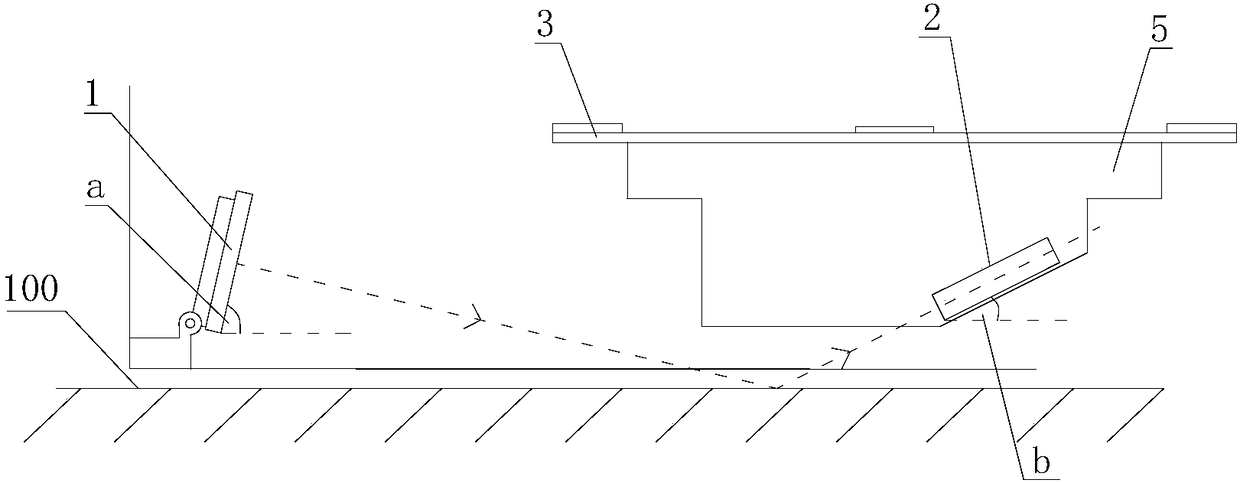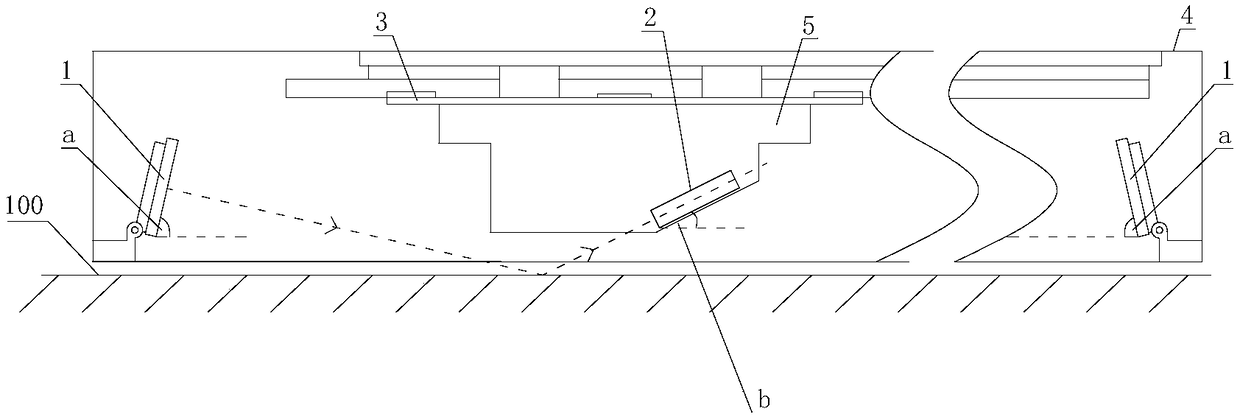CIS-based squint imaging device and method
An imaging device and angled technology, applied in the imaging field, can solve the problems of low work efficiency, inability to guarantee the image shooting effect, easy occurrence of overexposure, reflection, etc., to ensure the quality of image acquisition and prevent overexposure.
- Summary
- Abstract
- Description
- Claims
- Application Information
AI Technical Summary
Problems solved by technology
Method used
Image
Examples
Embodiment 1
[0025] Such as Figure 1-2 As shown, a squint imaging device based on CIS includes a light source 1 , a CIS sensor 2 and an imaging circuit 3 . The light source 1 irradiates light on the surface 100 of the measured object, the CIS sensor 2 can receive the light reflected by the light source 1 from the surface 100 of the measured object, and the imaging circuit 3 is connected to the CIS sensor 2 . The light source 1, the CIS sensor 2 and the imaging circuit 3 can adopt existing structures. And the light intensity of the light source 1 can be adjusted according to the shooting scene.
[0026] Among them, the CIS sensor 2 is a contact image sensor (Contact Image Sensor, CIS), which closely arranges the photosensitive units to directly collect the light information reflected by the scanned footprints. The CIS consists of a micro self-focusing rod lens array (RodLens array), a photoelectric sensor Array (CMOS image sensor array) and its circuit board, protective glass, interface,...
Embodiment 2
[0034] This embodiment is an improvement made on the basis of Embodiment 1, and this Embodiment 2 is the usage method of the squint imaging device based on CIS in Embodiment 1.
[0035] A squint imaging method based on CIS, comprising the following steps: a light source 1 emits light to the surface 100 of the measured object at an angle a to the surface 100 of the measured object, and then the CIS sensor 2 receives the measured object at an angle b to the surface 100 of the measured object The light reflected by the object surface 100, and then the CIS sensor 2 transmits the reflected light to the imaging circuit 3; the value range of a is 80°
[0036] In order to improve the flexibility of use, the light source 1 can be rotated along the body 4 to adjust the angle a, the CIS sensor 2 is arranged on the lens 5, and the lens 5 moves along the body 4 through a sliding device. Then adjust the light-taking position.
[0037] In order ...
PUM
 Login to View More
Login to View More Abstract
Description
Claims
Application Information
 Login to View More
Login to View More - R&D
- Intellectual Property
- Life Sciences
- Materials
- Tech Scout
- Unparalleled Data Quality
- Higher Quality Content
- 60% Fewer Hallucinations
Browse by: Latest US Patents, China's latest patents, Technical Efficacy Thesaurus, Application Domain, Technology Topic, Popular Technical Reports.
© 2025 PatSnap. All rights reserved.Legal|Privacy policy|Modern Slavery Act Transparency Statement|Sitemap|About US| Contact US: help@patsnap.com


